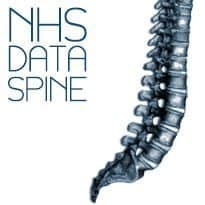Cumbria Partnership NHS Foundation Trust has implemented an NHS number lookup service from specialist supplier Mayden to give staff working in its psychological therapy services access to the NHS Spine.
The trust is one of 15 organisations to have adopted NHS number lookup in the past month.
It uses Quicksilva’s orQestra managed service to interface with the Spine, and was the first orQestra mini-spine service to gain NHS interoperability toolkit accreditation.
Cumbria staff can now access Spine data through Mayden’s IAPTus system, a psychological therapy patient management system that it has used since 2009.
Gavin Slater, the trust’s administration and performance manager, said that before it starting using the NHS number lookup staff had to separately look up information held on the Personal Demographics Service.
“The Spine lookup tool is a part of IAPTus, which makes it very efficient,” he said. “Having the whole system under one roof is very convenient.”
Cumbria Partnership NHS Foundation Trust offers psychotherapy services such as talking therapies for patients who suffer from common mental health problems such as depression and anxiety.
Slater said the real time access to patient demographic information would enable staff to provide a better standard of patient care and speed up referral times.
“Making sure we have the right details gives us much more efficiency in delivering our service,” he said.
“For our patients it means quicker access to therapies, having the correct information and making sure that information is accessible to the right people.”
Chris Eldridge, product manager at Mayden added: “The key to this project is its simplicity.
"Web-based systems that can be securely accessed from any computer – and quickly rolled-out with Spine integration provided by Quicksilva and data reconciliation delivered at the back end by Mayden – are the next logical step.”
Gayna Hart, managing director of Quicksilva, said projects of this kind could lead to consistent use of the NHS Number and other PDS services.
“It is smaller, localised projects such as these that will make the delivery of Spine services across the country a reality,” she said. “Sharing information will make life easier for everyone, and overcome inefficiencies that cost tax payers millions.”
The organisations using the new service include small charities, social enterprises and private sector providers, as well as NHS trusts.
The two companies point out this demonstrates that any organisation that meets ITK requirements can now connect to the spine through a mini-service; a move that will be essential as the ‘any qualified provider’ regime is rolled-out.

